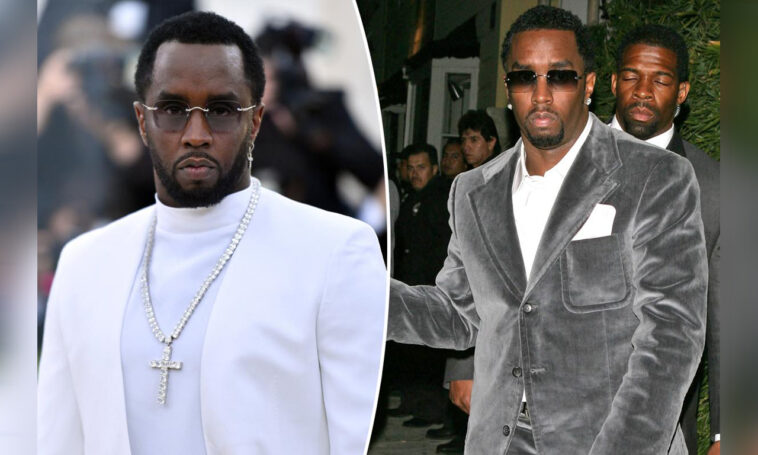A New York judge recently rejected Sean “Diddy” Combs’ request to impose a strict gag order that would have prevented government officials from leaking information about his ongoing legal case. Combs, a well-known music mogul and rapper, is currently in custody, facing severe allegations related to sex trafficking and racketeering. Despite the rejection of Combs’ original proposal, Judge Arun Subramanian implemented a similar gag order aimed at protecting the integrity of the trial. The decision highlights the judge’s commitment to ensuring a fair and unbiased legal process, focusing on preventing any premature disclosures that could affect the outcome of the trial.
The ruling came after Combs’ legal team filed a motion expressing concerns over potential leaks by federal agents and government officials. According to court documents, the rapper’s attorneys argued that the flow of confidential information to the media could compromise Combs’ ability to receive a fair trial. Subramanian, in response to the motion, clarified that while he found no evidence of wrongful conduct by federal authorities or Combs’ defense team, he deemed it necessary to implement an order to restrict any future leaks. His intention was to preserve the judicial process by minimizing the risk of media interference, especially considering the gravity of the charges against Combs.
Judge Subramanian emphasized the significance of upholding grand jury secrecy laws, explaining that such restrictions are fundamental to maintaining the impartiality of the judicial system. In a written statement, he clarified,
“To be clear, this order isn’t based on a finding that there has been any wrongdoing thus far, as the Court has made no findings at this juncture relating to the defendant’s allegations that information related to the case has been leaked.”
The judge’s comments suggest that the primary goal of the order is precautionary: to shield the legal process from potential disruptions, ensuring that all parties have a fair opportunity to present their cases.
The order further specifies that any violations of the gag order will be met with appropriate judicial action. Judge Subramanian’s approach underscores a zero-tolerance stance for actions that could jeopardize the case’s fairness, emphasizing his commitment to an unbiased legal environment. This ruling reinforces the seriousness with which the court is approaching this high-profile case, which has drawn significant public and media attention due to the celebrity status of the defendant and the severity of the accusations.
In addition to seeking the gag order, Combs’ legal team has voiced frustration over previous media leaks, particularly regarding the release of a video showing him in an altercation with his former girlfriend, Casandra “Cassie” Ventura. This footage, which dates back to an incident in 2016, depicts Combs allegedly engaging in violent behavior toward Ventura at a hotel in Century City, California. The video, which reportedly shows Combs kicking, pulling, and dragging Ventura, was publicly broadcasted. Combs’ attorneys have accused federal agents of leaking the video as a means to damage his reputation and undermine his defense.
The defense’s accusation suggested that the leak was a strategic move to sway public opinion against Combs before his trial, thereby increasing the difficulty of defending him in court. The legal team argued that, instead of being used as evidence within a fair trial framework, the video was weaponized to tarnish Combs’ public image in an “irreparably damaging” manner. They asserted that this dissemination of evidence was not only prejudicial but also counterproductive to establishing an unbiased trial setting.
Federal prosecutors, however, have denied any involvement in the video’s leak. They maintained that they did not possess the video before CNN’s broadcast, challenging the defense’s claims as unfounded. In a letter to Judge Subramanian, prosecutors stated, “The Government was not in possession of the video before its publication by CNN. There is thus no colorable factual basis for the defendant’s claim that the Government leaked the video to CNN, let alone that it was leaked ‘in violation of grand jury secrecy.’” This rebuttal underscores the contentious nature of the allegations between Combs’ legal team and the government, illustrating the complexities of managing media exposure in high-profile cases.
While the leaked footage is not directly related to Combs’ current charges, the rapper previously addressed the incident on social media, expressing regret over his behavior. He admitted to his “f–ked up” actions in the video but emphasized that they were part of his past and not associated with the present allegations. This public apology may be seen as an attempt to acknowledge and distance himself from the past behavior while focusing on defending against the current charges.
As the case progresses, Combs remains in custody at a detention facility in Brooklyn, New York, awaiting his day in court. He was arrested on September 16 and formally charged with racketeering, sex trafficking, and transportation for the purpose of engaging in prostitution. The outcome of his case will likely have significant implications, not only for Combs but also for the handling of celebrity legal matters under intense media scrutiny. Judge Subramanian’s decision to enforce a gag order, albeit not as restrictive as Combs’ legal team requested, reflects a delicate balancing act aimed at protecting both the defendant’s right to a fair trial and the public’s access to information in high-stakes legal proceedings.





Join the Community and Be a Part of the Conversation
You must be logged in or registered to post a comment.